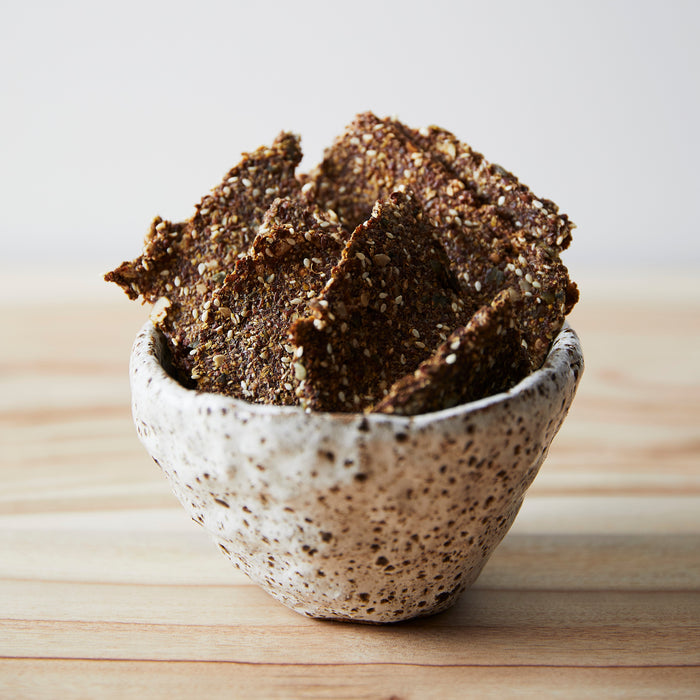We would all like to feel a bit sharper, have a good memory, feel clear, happy and balanced. Brain fog on the other hand is very common with a lot of people and there are many causes. Can we help our brains to be more effective and give us the energy, focus and insightfulness that we would like? Research supports a list of foods that can help with brain health. On top of this changing some of our old patterns and behaviours can play a big role in helping our brains to give their best.
Let's look at some foods that support optimal brain health and function first:
- Omega-3 essential fatty acids. DHA, one of these fatty acids is essential for the development of the brain. Most of this is formed in the fetal stage and the rest in the first year of life. Mother's milk contains DHA so breast-feeding is highly recommended and mums who eat fish in their pregnancy or supplement with DHA will have adequate amounts. Omega-3 fatty acids are a key structural component of brain cell membranes and nerve cells, they are anti-inflammatory and as such can be helpful in preventing depression, anxiety, ADHD, brain fog, dementia and Alzheimer's disease as chronic inflammation is a contributory cause of all of these conditions. The best sources of fish for high DHA levels are wild salmon, mackerel, sardines and herring.
- Berries, especially blueberries. These not only taste great but they contain substances called anthocyanins that stimulate the formation of new brain cells and also protect the brain from chronic inflammation. Berries can also help clear the brain of toxic proteins (which build up in Alzheimer's) and increase brain plasticity. They also contain resveratrol which has been shown to increase brain function and memory. Resveratrol is also in red wine although berries are a better source.
- Avocadoes. These are another good fat, monounsaturated like olive oil, and they contain vitamins that help with brain health and function. They also contain tyrosine, a precursor to dopamine which is a chemical that helps to keep you motivated and focussed. They support the production of acetylcholine, another chemical needed for memory and learning.
- Eggs, high in protein, B12 and essential fatty acids, also contain high amounts of the amino acid tryptophan which is a precursor to serotonin, one of the happy hormones. They contain good amounts of B vitamins, including choline, like avocado's, which is needed to make acetylcholine. This chemical has been found to be low in people with dementia and Alzheimer's.
-
Walnuts, which look like a little brain are an excellent source of plant based omega-3 fats. They also contain serotonin and have anti-oxidant and anti-inflammatory properties, especially helpful for the brain.
- Seaweeds contain iodine which is necessary for the thyroid gland and low function in this organ is associated with brain fog and other symptoms like low energy. They also contain B12 and other B vitamins and like avocado's are a good source of tyrosine which is needed for that wonderful neurotransmitter, dopamine.
-
Turmeric. There are many good herbs and spices but the king of them all for the brain has to be turmeric. Turmeric contains over 100 compounds, some of which have antioxidant, anti-inflammatory and neuroprotective traits. For maximum absorption, cook fresh turmeric (or use the powder) and add black pepper which increases it's absorption by 2,000 percent. Turmeric reduces brain inflammation and research is showing that it can help prevent dementia and Alzheimer's.
- The Mediterranean Diet has also been shown to reduce the risk of Alzheimer's and a key factor here is the use of olive oil. Use it for all your salad dressings as it is best not heated and make sure you buy cold pressed extra virgin olive oil from a small local farm if possible. It is a monounsaturated fat like avocados and as such has been shown to improve brain function.
-
Coconut Oil, with its medium chain fatty acids, is proving to be a great brain enhancer. I would recommend cooking with coconut oil as it has a higher stability rate than other oils.
So apart from including all these wonderful foods into our diets to help nourish our brains what else can we do?
A stressed body and mind will lead to a stressed brain. When we are in chronic stress are bodies are in fight and flight and producing high amounts of cortisol and adrenaline. High levels of cortisol and adrenaline can affect your memory, your sleep, lead to anxiety and depression as well as other health problems. When we are in fight and flight, we are acting from the older part of our brain, the amygdala, on patterns and programmes that have been there since our early childhood years. When we are relaxed and present, we have the option of more choice in our life, more creativity and solutions to problems come more easily as we strengthen the pre-frontal cortex or new brain. Practicing mindfulness, as well as exercise, yoga and meditation can help to strengthen our frontal cortex. Also, the Heart Math Institute has some great research on the connection between the heart and the brain. Focussing our attention and breathing into our hearts, while at the same time bringing in a feeling of gratitude, changes our electromagnetic field and decreases cortisol levels while raising DHEA (an anti-aging hormone) at the same time. This in turn, will help our brain to become more clear and focussed and help prevent dementia and other related conditions. There is so much information now to help us with improved brain health and function. Take some time out over the holiday season to rest and relax and turn off your electronic devices. Walking, swimming, being in the moment with gratefulness will go a long way to nourishing your brain and your soul. Suzanne Staples ND DBM Naturopath Herbalist Homoeopath Email suzestaples@gmail.com
Copyright Suzanne Staples

